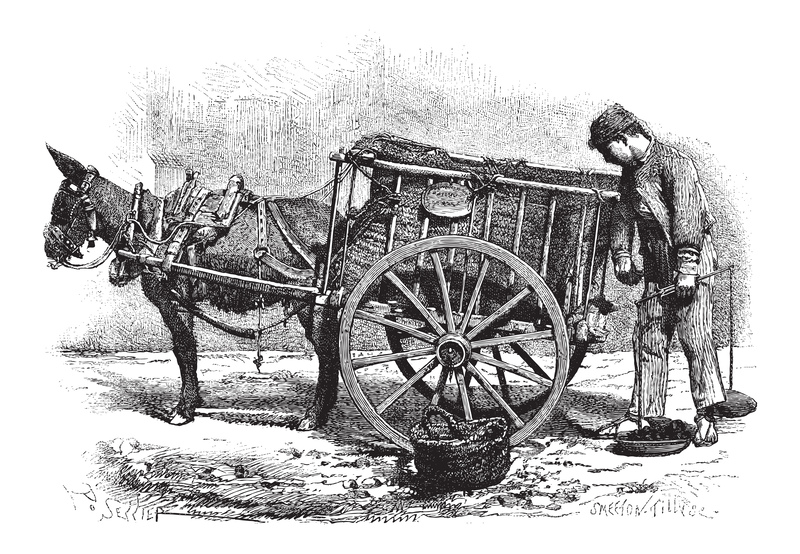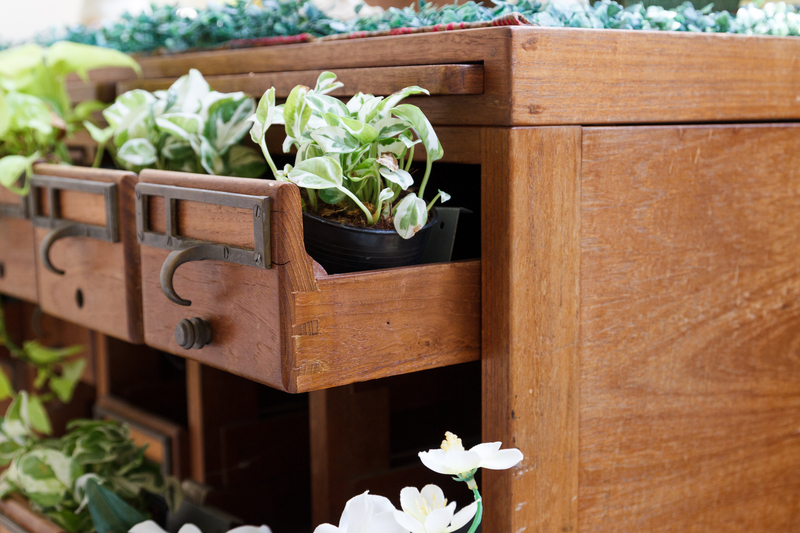How to Make Recycling Appealing to Children: Comprehensive Guide
Recycling plays a vital role in protecting the environment, conserving resources, and reducing waste. However, teaching children about recycling in a way that truly engages them can sometimes be challenging. Parents and educators may often wonder, "How can I make recycling appealing to children?" In this comprehensive article, we'll explore creative strategies, educational activities, and practical tips to inspire and motivate young minds to care about recycling. Whether you're a teacher, caregiver, or parent, this guide will help you foster a lifelong eco-friendly mindset in the next generation.

Why Is It Important to Teach Kids About Recycling?
Understanding the importance of recycling is the first step to getting children genuinely interested in the process. Here are some compelling reasons why recycling should be a core value taught to children:
- Environmental Responsibility: Teaching recycling helps kids understand their impact on the planet.
- Resource Conservation: Recycling conserves natural resources, ensuring future generations have what they need.
- Community Engagement: Kids learn to work together as a team for a common good--improving their social skills along the way.
- Creativity and Problem Solving: Recycling stimulates kids' creativity as they find new uses for old items.
Benefits of Early Recycling Education
Research shows that children who are introduced to recycling at a young age are much more likely to continue eco-friendly habits into adulthood. By making recycling appealing to children, you lay the groundwork for a sustainable future.
Creative Ways to Make Recycling Fun and Interesting for Kids
If you want to encourage children to recycle, you'll need to show them that recycling can be both fun and rewarding. Here are some innovative techniques to make recycling exciting:
1. Turn Recycling into a Game
Children love games, and when learning about recycling is paired with play, it becomes much more appealing. Here's how you can transform recycling into a playful activity:
- Sorting Relay: Set up bins with labels such as plastic, paper, glass, and metal. Race in teams to sort items correctly.
- Recycling Bingo: Create a bingo board with recyclable items. Mark off each square when an item is found or recycled correctly.
- Recycle Scavenger Hunt: Organize a hunt around the house or school for items that can be recycled. Award a prize for the most items found.
2. Empower Kids with Responsibilities
Children feel important and valued when they're trusted with responsibilities. Assign them specific duties, such as:
- Recycling Monitor: Rotate the role so every child gets a chance to oversee the recycling efforts.
- Bin Designer: Let children decorate and label recycling bins, making the process feel more personal.
3. Encourage Creativity Through Upcycling
One of the most effective ways to make recycling appealing for kids is to channel their creativity by turning recyclable items into art and craft projects, also known as upcycling. Here are some ideas:
- Bottle Planters: Transform plastic bottles into cute planters for herbs or flowers.
- Egg Carton Creatures: Make bugs or animals from used egg cartons and paint.
- Cardboard Castle: Build castles, cars, or houses from old cardboard boxes.
- Tin Can Wind Chimes: Decorate cans and hang them as musical wind chimes.
Host Upcycling Workshops
Organize a monthly upcycling workshop at home or in the community. Encourage kids to bring recyclable materials and create new objects to use or gift. Not only does this make recycling enjoyable, but it also teaches children valuable life skills.
Integrating Recycling into Daily Routines
Consistency is key when developing any habit. Incorporate recycling into children's routines to help them see it as a normal part of daily life. Here's how:
- Dedicated Recycling Time: Set aside a few minutes each day for sorting recyclables together.
- Recycling Chart: Keep a chart and mark each day that recycling was done. Offer small rewards for consistency.
- Visual Reminders: Place colorful posters or stickers near recycling bins as a reminder.
Involve the Whole Family
Making recycling a family affair will reinforce its importance. Cook meals with less packaging, use reusable bags, and discuss sustainable choices together. Children model what they see at home.
Educational Resources and Tools
A diverse set of resources can make recycling relatable for children. Here are some recommended approaches:
- Books and Stories: Read picture books like The Adventures of a Plastic Bottle or Michael Recycle to show the recycling process from a kid's perspective.
- Cartoons and Videos: Watch short educational videos, such as Disney's "Recycle Rex," that illustrate recycling and sustainability in a fun way.
- Interactive Websites: Websites like National Geographic Kids or Recycle City feature recycling games and quizzes.
- Field Trips: Visit a local recycling center or landfill to see the journey of recycled materials firsthand.
Educational Kits and Apps
Explore recycling-specific kits or activity packs designed for children, which include experiments or challenges. Apps like "Recycle Hero" gamify the act of sorting waste, keeping kids engaged and competitive.
Tips for Communicating Recycling Concepts Effectively
Children are naturally curious, but abstract concepts like recycling can sometimes be hard for them to grasp. Here's how to break it down for younger audiences:
- Use Simple Language: Avoid technical jargon. Explain recycling as giving things a "new life."
- Visual Demonstrations: Show what happens to items when they aren't recycled--use pictures or videos to illustrate the problem of littering or landfill buildup.
- Make It Personal: Explain how recycling helps their neighborhood or favorite playground stay clean.
- Celebrate Progress: Acknowledge when children recycle correctly and thank them for their efforts.
Storytelling to Drive the Message Home
Create stories around the adventures of a piece of paper or a plastic bottle navigating the recycling journey. Making the objects into characters helps kids remember and relate to the concepts.
Connect Recycling to Broader Environmental Values
To make recycling appealing for children, connect it to larger goals such as wildlife protection, clean oceans, and healthy communities. Children are empathetic creatures, and showing them how recycling benefits animals and people can be powerful motivation.
- Show Real-Life Impact: Discuss famous clean-up events like World Cleanup Day or show documentaries about ocean pollution.
- Engage in Community Service: Participate in litter pick-up days or tree planting events as a family or class.
- Wildlife Connections: Explain how recycling helps keep birds, turtles, and other animals safe.
Overcoming Challenges: What If Kids Don't Want to Recycle?
Not all children will embrace recycling immediately. Some may find it boring or even "yucky." Here are strategies for overcoming resistance:
- Address Concerns: If children think recycling is dirty, provide gloves and easy-to-clean bins. Turn sanitary practices into another lesson.
- Make It Social: Encourage recycling "teams" among friends or classmates, or partner up older and younger kids for mentorship.
- Incentivize Participation: Offer fun incentives such as stickers, privileges, or eco-friendly gadgets for recycling milestones.
Reinforcing Positive Recycling Habits at Home and School
Consistency is essential for building habits that last a lifetime. Use these techniques to keep kids motivated:
- Visible Progress: Track the amount of material recycled on a weekly chart or graph and display it prominently.
- Recognition: Hold monthly "eco-leader" awards for the student or child who excels in recycling efforts.
- Collaborative Projects: Create class or family recycling goals with rewards for meeting milestones together.

Frequently Asked Questions About Kids and Recycling
At What Age Should Children Start Learning About Recycling?
Children as young as three can start learning about recycling by sorting items with adult supervision. Tailor activities to their age and ability.
What If There Are No Recycling Facilities Nearby?
If local recycling options are limited, focus on reduction and reuse. Upcycling, composting, and supporting products made from recycled materials also teach environmental stewardship.
Conclusion: Building a Generation of Eco-Conscious Adults
Teaching children how to recycle and making the process fun, valuable, and creative is essential for building an eco-friendly generation. By following these strategies, you can make recycling appealing to children and help them develop lasting habits. Remember to combine fun games, creative projects, clear communication, and consistent routines. With your guidance, children will soon see recycling not as a chore, but as a rewarding way to care for the Earth. Start today, and inspire a lifetime of positive environmental action!
- Set a positive example at home and in public spaces.
- Use engaging materials to reinforce learning.
- Celebrate successes to motivate ongoing participation.
For even more ideas on how to make recycling interesting for children, explore your local community resources, visit recycling centers, and never hesitate to turn recycling into a shared family adventure. Together, we can make a real difference, one recycled item at a time!